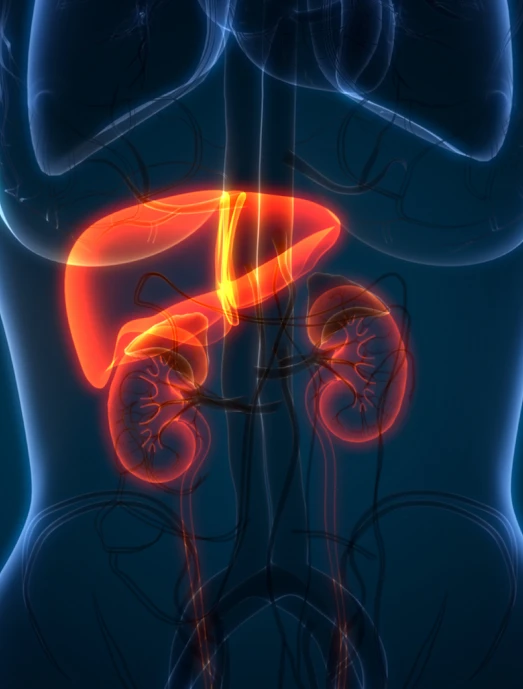
What is a Living Donor Kidney Transplant ?
Kidney transplantation is a remarkable procedure that offers a new lease on life by placing a functioning kidney from a donor into a recipient with end-stage renal disease (ESRD). This life-altering surgery allows the transplanted kidney to restore normal body functions by filtering toxins and producing urine, just as healthy kidneys do. Only one donated kidney is required to replace two failed kidneys, making living-donor transplantation an excellent option. If no compatible living donor is available, the patient may be placed on a waiting list for a kidney from a deceased donor.
Living Donor Kidney Transplant Procedure
A kidney transplant involves both the donor and recipient undergoing surgery. The donor, who must be in good health, is typically a family member or close friend, though unrelated altruistic donors are also possible. Both the donor and recipient are thoroughly evaluated by a transplant team to ensure compatibility and fitness for the procedure. Legal clearances from the hospital or State Authorization Committee (depending on the local laws) are required before the transplant.
The procedure is done under general anesthesia. The donor’s kidney is usually removed using laparoscopic techniques, while the recipient has an incision in the lower abdomen where the new kidney is placed. Blood vessels from the new kidney are connected to those in the recipient’s pelvis, allowing blood to flow through the kidney and enabling it to produce urine. Damaged kidneys are typically left in place unless they pose a medical risk, such as high blood pressure or frequent infections. The transplant surgery generally takes about 3-4 hours.
Advantages of Living Donor Kidney Transplant
- Shorter waiting time compared to deceased donor transplantation.
- Better success rates and longer-lasting graft survival.
- Higher quality of life with fewer complications compared to dialysis.
- The recipient can plan the transplant surgery, allowing for a smoother transition from dialysis.
Risks of Living Donor Kidney Transplant
As with any transplant, there are risks, primarily due to the recipient’s immune system recognizing the new kidney as foreign, which can lead to Rejection. Immunosuppressive medications are used to prevent rejection by lowering the immune response, but they increase susceptibility to Infections.
Other potential risks include:
- Diabetes (due to steroid use or family history).
- Recurrence of the underlying kidney disease in the transplanted kidney.
- Cataracts, bone weakness, and obesity.
- Cardiovascular events such as heart attack or stroke.
- Wound infections.
- Surgical risks like bleeding or clotting.
Despite these risks, advances in transplant science have increased the success rate of living donor transplants to approximately 97-98%.
After the Transplant: Recovery and Care
After the transplant, the recipient typically stays in the hospital for 7-10 days, while the donor stays for about 3-4 days. Close follow-up is essential, with regular blood tests to monitor kidney function. The transplant team may ask the recipient to remain close to the hospital for the first two months to facilitate frequent check-ups and tests.
Cost of Living Donor Kidney Transplant
The cost of a living donor kidney transplant varies by location and hospital. While initial expenses can be high, a transplant often proves more cost-effective in the long term than lifelong dialysis, offering the added benefit of improved quality of life.
Living Donor Requirements
The donor must be healthy, aged 18-65 years (there is no upper limit) and free from conditions that could impact kidney function. Family members or close friends are often screened, and the donor is chosen based on compatibility and health. Donors are evaluated by the transplant team and require legal authorization before donation. With their immense reserve capacity, the kidneys ensure the donor can live a healthy, full life with the one kidney after donation.
Outlook and Prognosis
A successful kidney transplant offers a significantly improved quality of life compared to dialysis. Recipients of living donor kidneys generally have better outcomes than those receiving kidneys from deceased donors. Donors, too, can safely live full, healthy lives with a single kidney.
Post-transplant care requires close collaboration with the nephrologist. Recipients should:
- Adhere to the diet recommended by the transplant team.
- Drink plenty of fluids.
- Avoid alcohol and smoking.
- Maintain a healthy weight within the recommended range.
- Follow a regular exercise routine.
- Take all prescribed medications without missing doses.
- Report any medication changes or new health issues to the transplant team.
- Attend regular follow-up visits with the transplant team.
Ensuring that the transplant team has up-to-date contact information is essential for timely communication regarding post-transplant care.
Living Donor Kidney Transplant in India
If you’re considering a living donor kidney transplant due to chronic kidney disease or end-stage renal failure, expert care is essential for ensuring a successful procedure and long-term health. Dr. Kamal Kiran offers specialized expertise in living donor kidney transplants, providing personalized treatment plans tailored to meet each patient’s unique needs. With a focus on donor matching, transplant surgery, and post-surgery recovery, Dr. Kamal Kiran’s comprehensive approach ensures a high success rate and a smooth transition to a healthier, dialysis-free life. Take the first step toward a life-changing renal transplant—schedule your consultation with Dr. Kamal Kiran today.